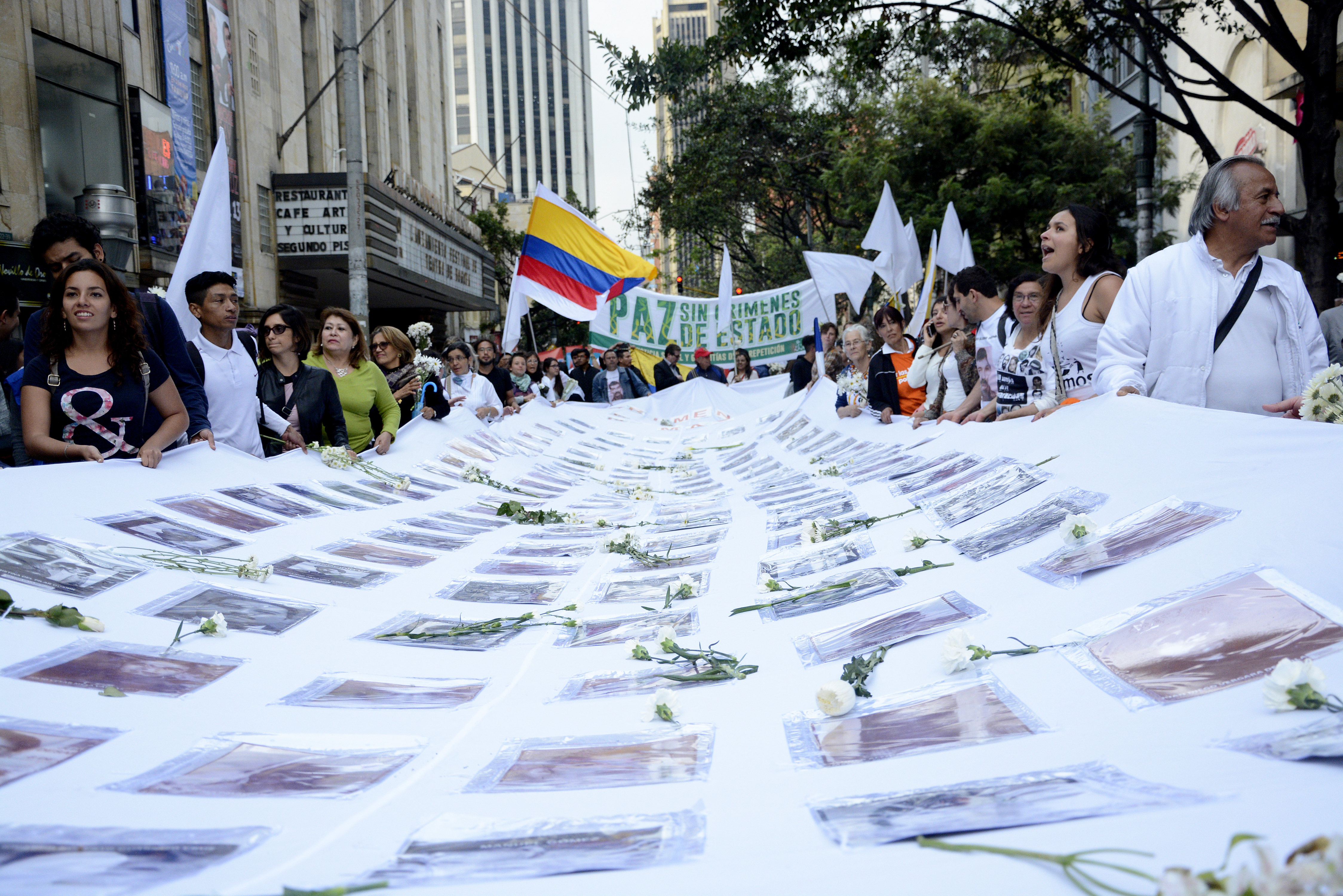In 2016, the Tribunal Superior de Bogotá rendered a decision where it affirmed that the Bloque Capital of the AUC, which operated in the capital, was consolidated at the end of 1997. After the Mapiripán massacre, Carlos Castaño ordered the criminal structure to be expanded with the support of the (retired) military captain Jorge Rojas Galindo and the drug trafficker Miguel Arroyave (full story in El Espectador). The bloque’s center of operations was in Sanandresito de la 38 and the extortion of merchants, connections with the Police, settling of scores and hiring of hitmen were managed by Arroyave.
Concerning the conducts of the State agents, the 13th Brigade of the Army was responsible for a series of assassinations and terror campaigns at the end of the 1990’s. More specifically in 1998, the Colombia Nunca Más Project’s office was raided, “The soldiers forced the employees to kneel down under the threat of their guns and took pictures of them, it was apparently planned to look like summary executions. During the raid, the soldiers called employees “guerrilleros” and filmed them with the documents in the office”, said a report from the international NGO Human Rights Watch.
During that period, the monitoring of human rights organizations by military intelligence was common. Indeed, phone conversations were tapped, threats were made, websites, internet and phone lines were taken down. Similar doings took place under Álvaro Uribe’s government, for example chuzadas – tapping of the phones of human rights activists, unionists, journalists, student leaders and political opponents by the Departamento Administrativo de Seguridad – DAS (State organism in charge of the intelligence and counterintelligence), reported in 2009.
Moreover, the colombian capital had been declared as the city with the most displaced persons in the world : 350.000 in 2014. According to Registro Único de Víctimas (RUV), in may 2018 Bogotá received 549.700 displaced persons originating from various regions of the country, victims of various socio-political acts of violence related to the armed conflict.
Since the end of the Havana dialogues, persecution against social leaders is systematic in the different departments of the country. In Bogotá, on the 19th of January 2015, the community leader Carlos Alberto Pedraza disappeared and then was assassinated.
In this chapter, there are victims of enforced disappearance, targeted killings and forced displacement from various parts of the country. The participating organizations are Hijos e Hijas, Beligerante, Guarichas, El Embudo, Unión Sindical Obrera (USO), Semillas de Memoria y Dignidad, with the support of volunteers and students. The chapter’s general assembly joins forces with victims and organizations from the municipalities of Cundinamarca such as Fusagasugá, Zipaquirá, Soacha and Facatativá.
Come back to map
News about Bogotá
Contact us: bogota@movimientodevictimas.org


